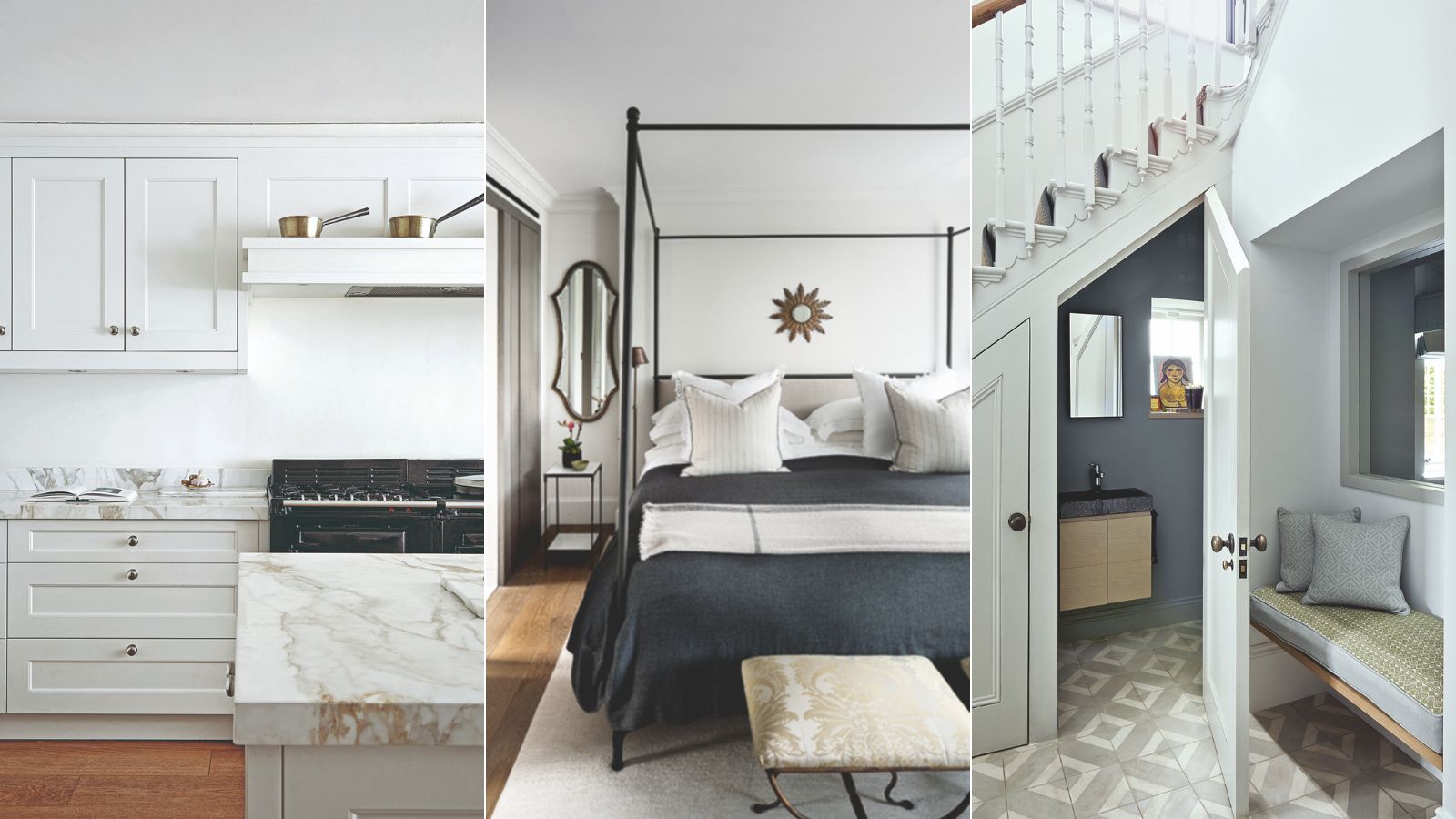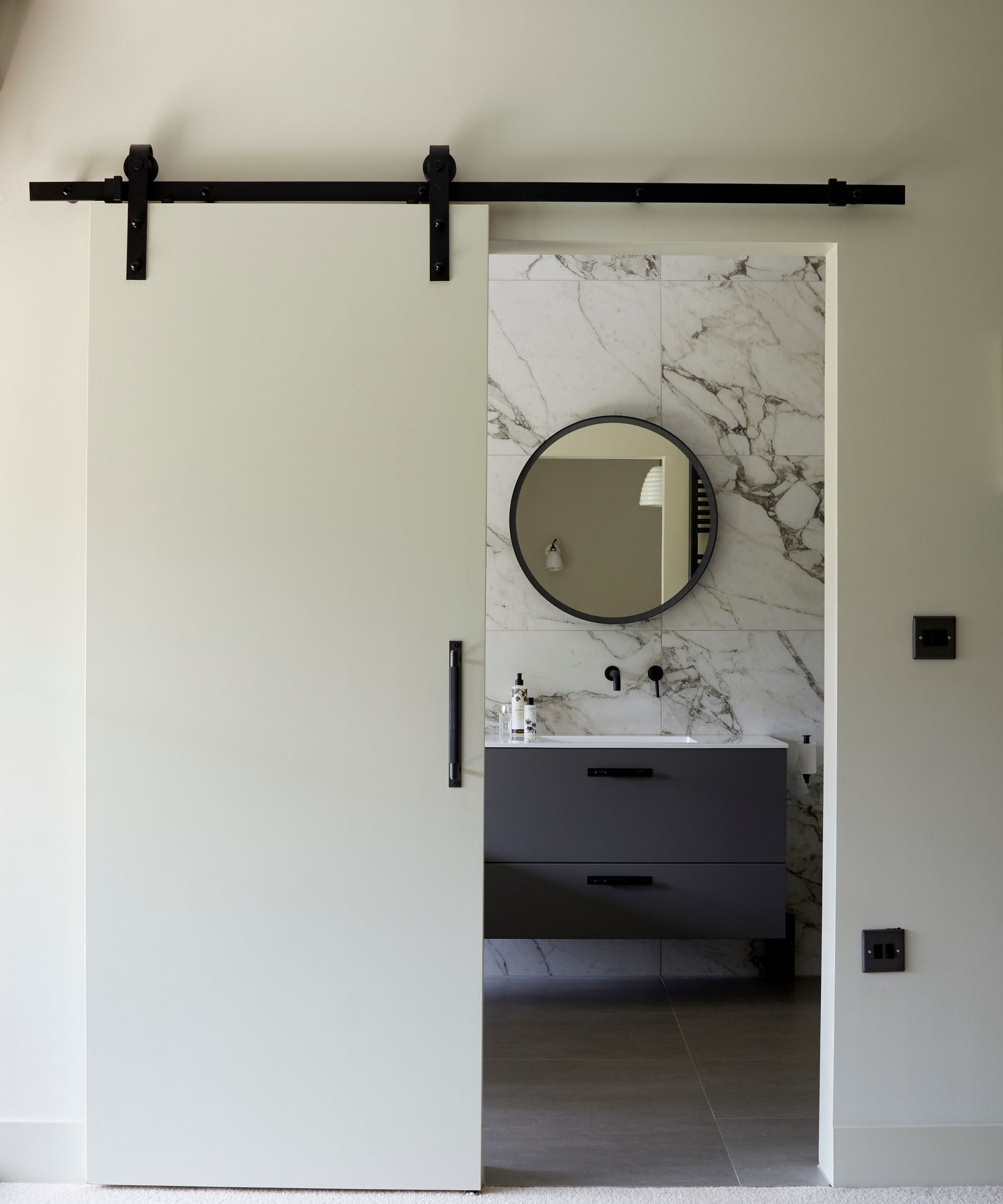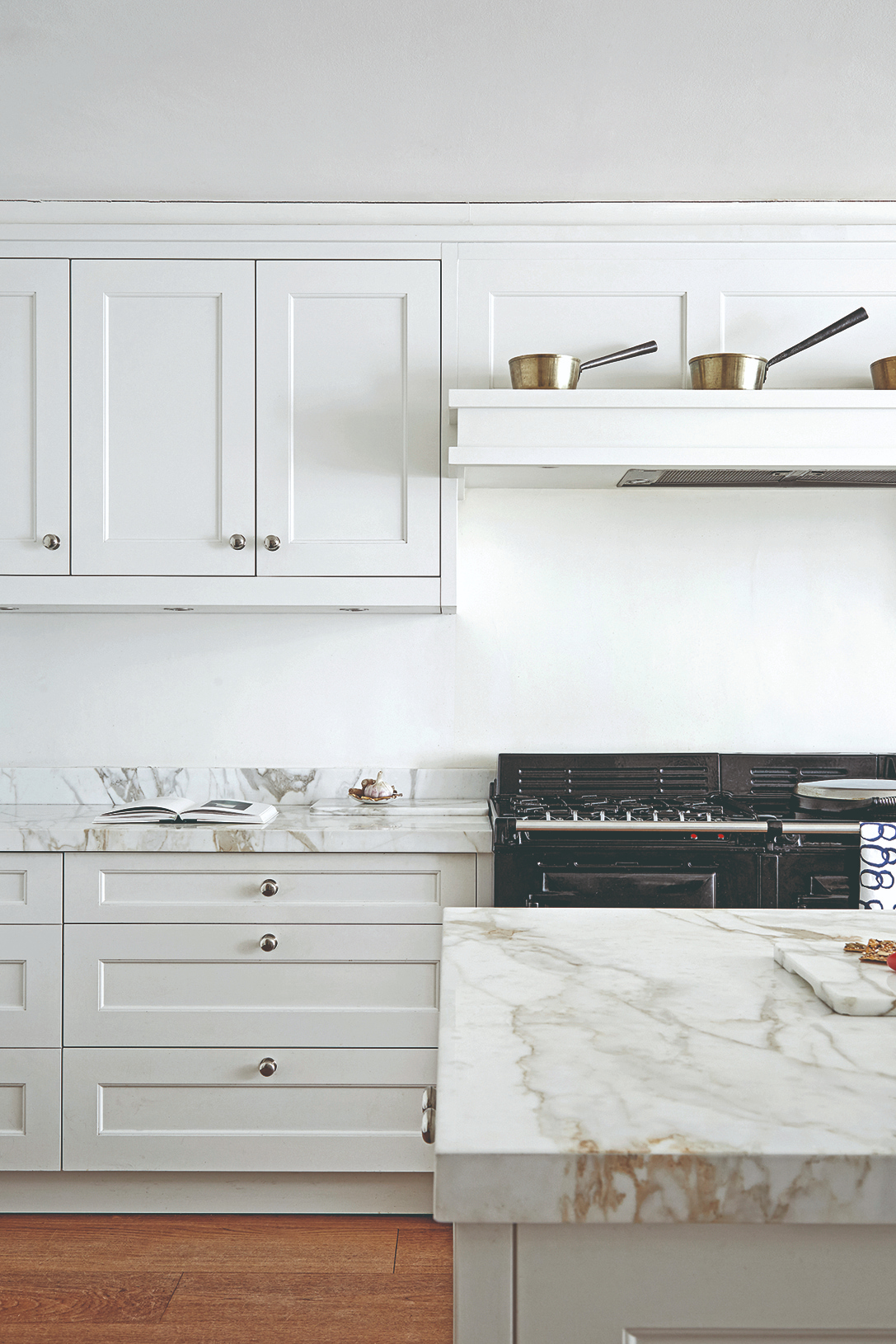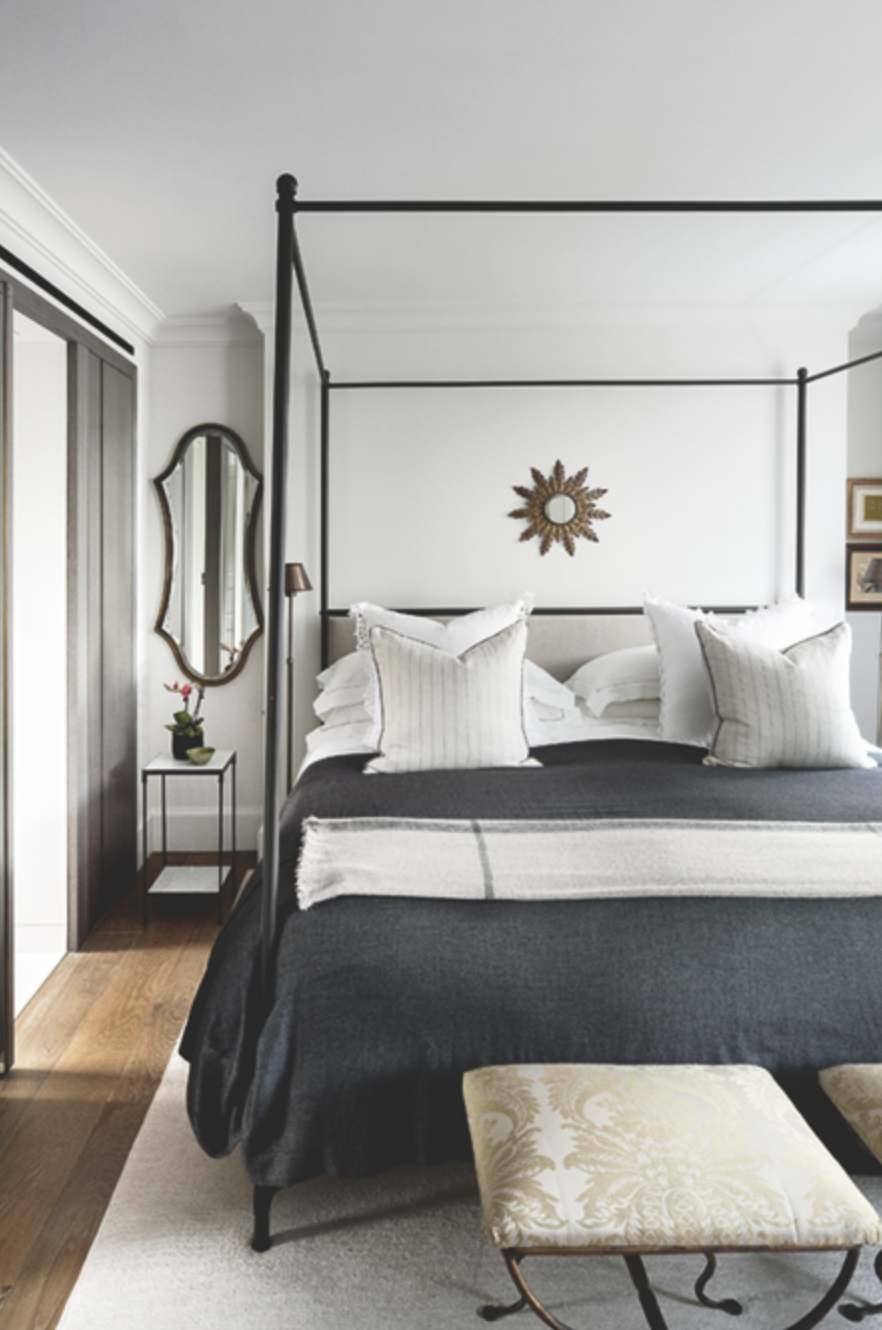
Design expertise in your inbox – from inspiring decorating ideas and beautiful celebrity homes to practical gardening advice and shopping round-ups.
You are now subscribed
Your newsletter sign-up was successful
Want to add more newsletters?

Twice a week
Homes&Gardens
The ultimate interior design resource from the world's leading experts - discover inspiring decorating ideas, color scheming know-how, garden inspiration and shopping expertise.

Once a week
In The Loop from Next In Design
Members of the Next in Design Circle will receive In the Loop, our weekly email filled with trade news, names to know and spotlight moments. Together we’re building a brighter design future.

Twice a week
Cucina
Whether you’re passionate about hosting exquisite dinners, experimenting with culinary trends, or perfecting your kitchen's design with timeless elegance and innovative functionality, this newsletter is here to inspire
It’s no surprise that messy surroundings can have a negative impact on our mental state, so if you’ve noticed your stress levels rising (in line with your clutter), now’s the time to start organizing your home with health and well-being in mind.
It’s not the most appealing task we know, but it should motivate you to learn that there are several lesser-known health benefits of organizing your home. Aesthetics aside, studies show it can increase productivity, boost confidence, and generally make you happier, as evidenced by the fact that a messy house can cause depression. And if that’s not enough to spur you on, know that it’s good for your physical health, too.
So, we’ve established it’s worth doing, but how do you organize a home with health and well-being in mind? Whether you’re looking for ways to sleep better, achieve that perfect work-life balance, or simply decrease your stress levels, the experts share the best organizing and decluttering habits to adopt to ensure you’re living your best life.
Organize your home with health and well-being in mind
There are all manner of home organizing ideas out there, but if you want to get the most out of the benefits of a tidy home and organize yourself healthy, you’ll need to think beyond general tidiness.
Organizing your home with personal goals in mind, whatever they may be, is the key to good wellbeing’, says professional organizer, Shannon Krause, Co-Founder of Tidy Nest.
‘If establishing a regular exercise routine is important to you, put your sneakers, gym attire, and workout equipment where you’ll see them as a continuous reminder. Or if stress management is what you’re striving for, prioritize decluttering.'
1. Visualize the end result

Before you dive in, take some time to reflect on your home now. You may think you’re a tidy person, but we’ve all got clutter lurking somewhere, it’s amazing how quickly you learn to live with it.
Design expertise in your inbox – from inspiring decorating ideas and beautiful celebrity homes to practical gardening advice and shopping round-ups.
‘Think about your ideal home environment, what you'd like it to look like, feel like, sound like’, says professional organizer Reba Bassett, Founder of Revelation Organizing. ‘I like to think of my home as a vacation rental – what would I like to see or experience there that would invite me to rest and recharge? Doing this creates a positive mindset and gives you a clear direction right from the start.'
Move around room by room; is there anything you’d like to change, move, reorganize, or get rid of? Write down a plan with a clear end goal in mind, and set yourself a rough timeline of when you want things done. Don’t be too rigid though, feeling pressured is the opposite of what you’re trying to achieve!
2. Make peace with letting go – and declutter regularly
‘Your home should be your oasis, somewhere you can feel calm, relaxed, and at peace. If you walk through the door only to feel agitated by all the ‘stuff’ you have lying around, it’s a sign that decluttering is in order’, says professional organizer Amanda Wiss, Founder of Urban Clarity.
All too often we hold onto items in our homes out of guilt or fear of letting go. Before you know it, you’re surrounded by ‘stuff’, half of which you don’t actually want or need. Free yourself of obligations and you’ll set yourself up for a successful decluttering session.
'If an heirloom or piece of art reminds you of a bad memory, you owe it to your health and happiness to toss, donate, or hide it. Surround yourself with items that help you thrive,' says health and wellness coach, Julie Kaminski.
By associating decluttering with relieving yourself of negativity and rewarding yourself for this act, you can enjoy the benefits of dopamine decluttering and boost your well-being.
3. Donate unwanted items to a good cause
Regular clearouts are great for our well-being, but it can be hard to know what to do with the items you’re decluttering. Rather than throw them, consider giving them to a friend, or donating to a charity that resonates with you. You’re less likely to experience declutter regret, and you’ll feel great knowing your items are going to a good home.
Another option is to sell your items and put the money towards something that’s going to contribute towards a happier, healthier lifestyle – gym membership, or a mindfulness class, for example.
4. Focus on areas that cause you conflict

Consider which areas of your home bother you most day-to-day and focus on those first. If you feel stressed as soon as you walk through the front door, consider organizing an entryway so it’s neat and orderly. If you’re wasting time searching for socks in the morning, try organizing a dresser so there’s less to rummage through.
5. Improve air quality
Keeping your home’s air clean is vital for good health, so if you’re wondering whether air purifiers are worth it, the answer is yes! Opting for eco-friendly cleaning products is another way of keeping irritants and chemicals to a minimum while keeping doors and windows closed during months when pollutants are high is a good cleaning tip for allergy sufferers, in particular.
6. Make healthy food choices accessible

When it comes to organizing a kitchen with wellness in mind, decluttering countertops and (giving them a thorough clean) is a good place to start – and a good habit to stick to. Next, organize your fridge and pantry to enable healthy food choices.
‘Having to repeatedly say no to cookies in the cookie jar becomes increasingly more difficult each time you pass by, so keep junk food hidden. Keep healthy, fresh foods at eye level in the fridge or on the counter as the easy grab-and-go option instead’, recommends Julie.
7. Invest in good storage
Remember that it’s impossible to eliminate clutter entirely, nor should we expect to. It’s an inevitable part of life, particularly when you’re organizing a home with kids in mind. That doesn’t mean you have to look at it though, our advice? if you can’t beat it, hide it.
‘There’s all manner of stylish storage ideas out there, which when organized properly, can make a huge difference not just to the look of your home, but how well it functions day-to-day,' says Gabriella Dyson, Head of Solved at Homes & Gardens.
‘When deciding what goes where, be sure to bear accessibility in mind. Being able to find what you need – when you need it – reduces stress levels ten-fold, and makes it easier to stick to positive routines across all aspects of your life, not just at home.'
8. Bring the outside in
‘Increasing natural light in your home boosts both vitamin D, your mood and energy levels, plus enhances a fresh feel’, says Shannon, Co-Founder of Tidy Nest. Consider pulling back the curtains, or altering your living room layout ideas to allow as much of it into your space as possible.
During the winter months when natural light is limited, consider using full-spectrum light bulbs that mimic natural light, such as this GE sun-filled LED light bulb, from Amazon.
Similarly, studies have also demonstrated the positive effect that nature can have on our mood and stress levels. Throw open the doors when you can and really embrace indoor outdoor living. Bringing healthy plants into your home that can improve health, happiness, and well-being will make a big difference, too.
9. Aid a good night’s sleep

Whether you’re organizing a bedroom for yourself or looking to create the best sleep environment for your child, creating a space that encourages rest and relaxation is the aim.
‘Bringing anything into the space that alters that energy is a hard no for us,' says Shannon, Co-Founder of Tidy Nest. ‘If you want to make your bedroom better for sleep, paperwork, homework or anything to do with your profession should be moved elsewhere. The same goes for piles of laundry, stacks of magazines… it’s all a constant reminder that you have a to-list waiting for you.'
Tech is another thing to eliminate, mobile phones included. ‘Shut them off and leave them in the kitchen, so you’re not tempted to look at them first thing in the morning, or at night,' she adds.
10. Keep things natural
We’re all about 'green living', both for the sake of our health – and the environment. Whether it’s cleaning products or detergents, candles (choose soy-based wax over paraffin, such as this fragrant fig-scented candle from Wayfair) or diffusers, always opt for natural products where you can. If you’re re-decorating, consider using eco paints and choose furniture and accessories made from natural and sustainable materials.
‘As well as being on-trend, natural materials connect us to nature and are super hard-wearing. Some even have bonus health benefits. Sisal carpets are naturally dust resistant as well as being eco-friendly, making them a great choice for cleaner living, for example, so do your research before investing,' says Jennifer Ebert, Digital Editor at Homes & Gardens.
It’s a well-known fact that your surroundings have a huge impact on how you feel, and a cluttered space is particularly anxiety-inducing. Your home is your sanctuary, so when it’s looking messy, your mind probably feels a little muddled too - ’tidy home, tidy mind’, as the experts say. It may not cure anxiety altogether, but decluttering your home will certainly create a sense of space and freedom, literally and emotionally, too.

For 10 years, Tara King worked as a Content Editor in the magazine industry, before leaving to become freelance, covering interior design, wellbeing, craft and homemaking. As well as writing for Ideal Home, Style at Home, Country Homes & Interiors, Tara’s keen eye for styling combined with a passion for creating a happy – and functional – family home has led to a series of organization and cleaning features for H&G.
